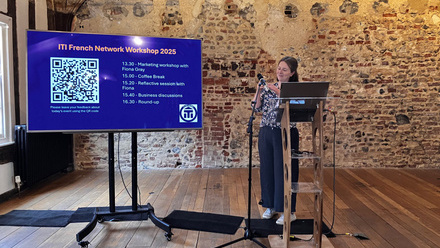Spring 2023 Pulse Survey results
Findings from ITI’s latest Pulse survey reveal that market conditions continue to be challenging but many ITI members are responding by seeking new clients, diversifying and raising their rates.
ITI’s Pulse survey provides a snapshot of the translation and interpreting market and how trends and economic pressures have been affecting it. Following a sharp decline in business confidence in the autumn 2022 survey, confidence fell slightly, by just one percentage point, in this latest survey.
Only 44% of respondents said they are feeling either ‘very positive’ or ‘positive’ about their work and prospects in the current business environment. This is not unexpected given the wider economic situation and is a reflection of what is being felt elsewhere in the economy and among other professions.
Those at the beginning of their careers are the most positive. 52% of Student and Affiliate members feel either ‘very positive’ or ‘positive’ about their prospects, compared with just 42% of those in other membership categories.
There has been a fall in the amount of new business gained. 60% of respondents had gained business from new clients (vs 64% in the autumn survey) while the number gaining more work from existing clients dropped sharply to just 17% (38% previously).
Earnings are clearly under pressure with 24% of respondents saying they had experienced a reduction and 52% saying earnings had remained the same as twelve months ago (18% and 57% previously). 24% reported that earnings had improved compared to 25% in the autumn survey.
Keen to understand steps that members may be taking to mitigate the challenging economic conditions, a new question was introduced into this edition of the survey. This revealed that 19% of respondents had diversified into other areas of translation and interpreting, while 26% of respondents had sought supplementary work outside the profession. These figures were consistent across the membership categories indicating that conditions are impacting members, regardless of their level of experience. MITIs and FITIs however, are more likely to have reduced their working hours (18% vs 14% for other membership categories).
Over half of respondents are looking to mitigate some of the financial pressures they face by increasing their rates. 20% of respondents have already introduced a rate rise in 2023, slightly up on the same time last year when the figure was 18%. A further 34% are planning a rate rise in the next three to six months.
Overall, it is clear that ITI members are feeling the impact of the current economic climate, but many are taking positive action in terms of raising their rates and taking other steps to shore up their income and standard of living.
Finally, the survey asked members what they felt were the most important activities ITI undertakes to position itself as the professional home to translators and interpreters. Promoting professionalism, increasing recognition and providing a sense of community were deemed the most important and were also the areas where the Institute was considered to be performing best.






